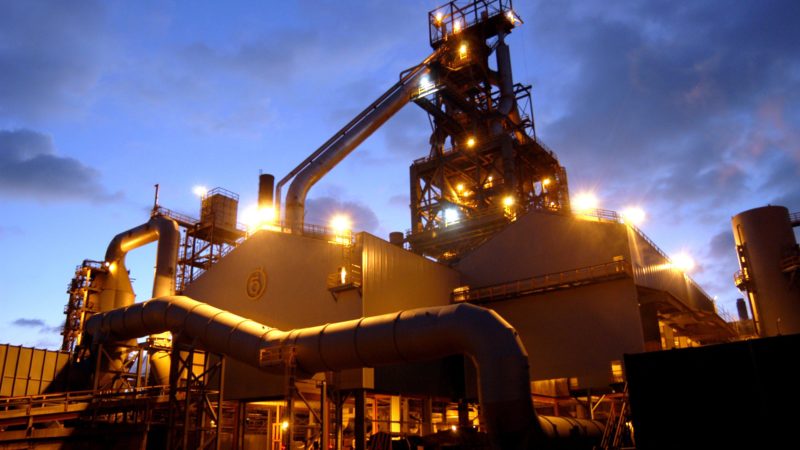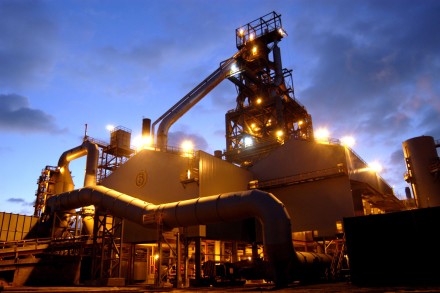

As we opened our papers this morning or scrolled though the news on our phones we will have been greeted with the latest updates on the civil war taking place within the Conservative Party, made a little more juicy thanks to a certain someone who is most notable for his blonde ambition, along with more about the horror show of another notably coiffured populist from across the Atlantic.
In stark contrast to all of that gossip and punditry, something real is happening this week in my constituency. This is the week that the impact of the January announcement of 750 job losses at the Port Talbot steelworks becomes tangible. In a series of meetings this week the men and women who have given years of service to the works will find out if they are amongst those being laid off.
So, this is the week that 750 is no longer just a number. 750 men and women (out of a total workforce of 4,000) will receive letters this week informing them whether or not they are listed for potential redundancy. It is possible that an alternative position in the works can be found for some of those listed, but the expectation is that redundancy will be the only option for the vast majority.
For a long time now we have seen this coming, and we have been calling on the government to act, but their record has been one of warm words matched by frozen actions. We asked them for relief on energy costs, but five years after accepting the need for action the money still hasn’t arrived.
We’ve asked them to use procurement to support British Steel. But there is still no evidence of change, with the MoD’s latest order of frigates being based on Swedish Steel.
We called on them to act against the dumping of Chinese steel. But instead they have been cozying up to China, and actively leading a campaign in Europe against effective trade defense reform.
We have demanded that they oppose Market Economy Status (MES) for China. Granting China MES would undermine our ability to protect British Steel from anti-competitive dumping. But instead of standing up for British industry they have been rolling out the red carpet for Beijing, and actively lobbying for China to be granted MES.
And for months now we have been urging the government to produce a long-term industrial strategy for the steel industry. The underlying cause of many of the failures that we have seen since 2010 can be attributed to the absence of a long-term industrial strategy for steel, with a commitment to a strategic approach to skills, investment, regulation and industrial relations.
In the run up to last May we couldn’t go two hours without hearing the government talk about their “long term economic plan”. With the steel industry we really need one. But, astonishingly, we have a Secretary of State for Business, Innovation and Skills who will not even allow the words “industrial strategy” to pass his lips.
Well, Sajid Javid may be happy to sit on his hands and do nothing, but I am not. I was therefore proud to announce, last week in the Commons, that I will be chairing – along with my colleague Anna Turley MP – a working group of the All Party Parliamentary Group on Steel that will produce a report, Steel 2020, to develop a blueprint for a long term industrial strategy for British Steel.
Ian Greenwood, Professor of Industrial Relations at Leeds University, will help author the report, with which we will show the government that they can do things differently: we will offer concrete proposals to secure the future of this critically important foundation industry.
For too long we have lacked a strategic sense of how future demand can be met. With an industrial strategy steel producers can know what type of steel is required to meet demand. That way the MoD wouldn’t have to go to Sweden for its steel, Hinckley Point could source far more of its steel from the UK, and we could ensure that the construction of the Swansea Bay Tidal Lagoon would be substantially based on British steel.
Think about the importance of steel: it is the basis of the houses we live in, the offices we work in, the bridges we cross and the trains in which we travel. Do we really think that the UK should be a country that no longer produces its own steel?
We may not be able to undo the pain that is being felt by my constituents this week, or the pain felt in Redcar last year. But with a long-term industrial strategy we can stop it happening again and begin to build a British steel industry that is fit for the future.
Stephen Kinnock is MP for Aberavon




More from LabourList
‘The hope that kills you’: Reflections from the final day in Gorton and Denton
MPs, union leaders and organisations react to ‘bruising’ Gorton and Denton result
A gory night for Labour